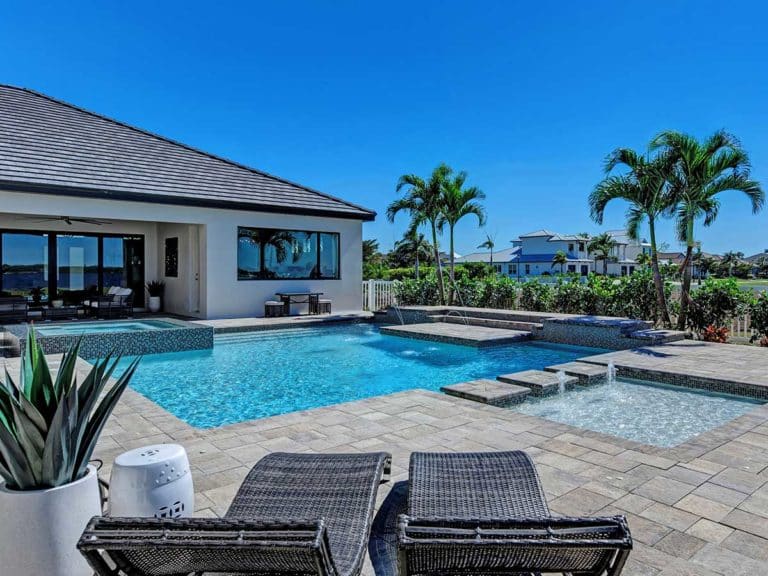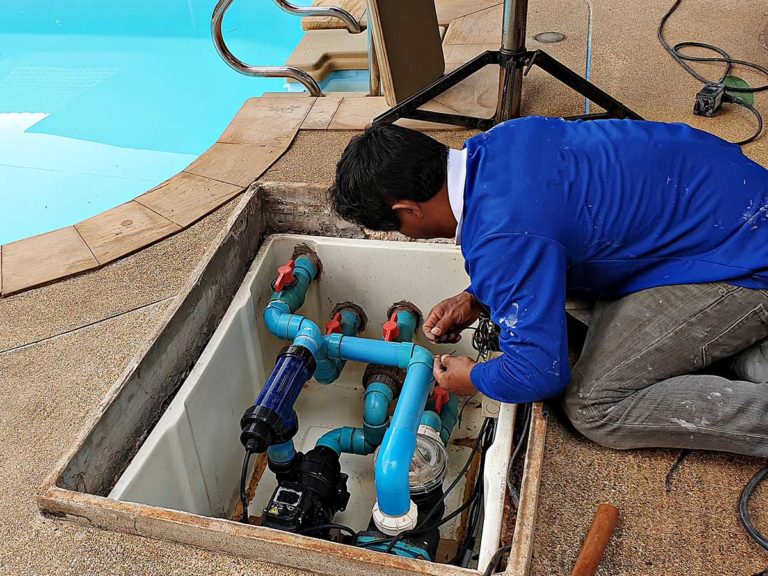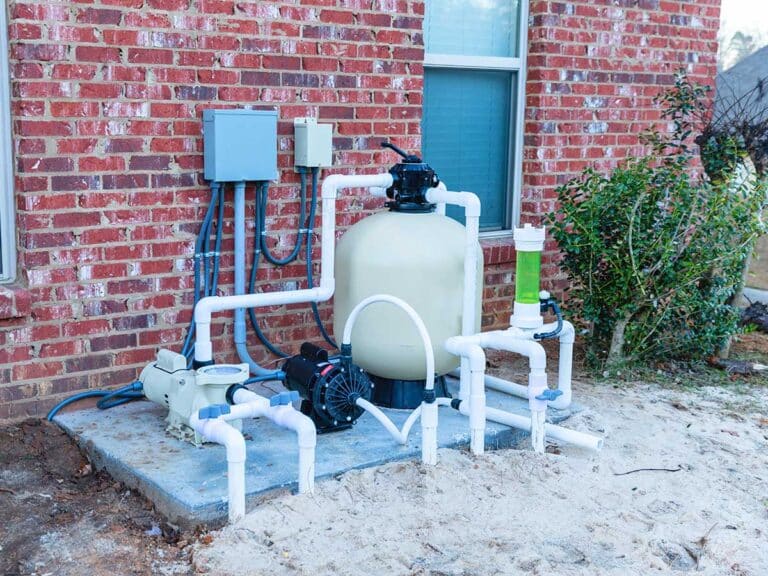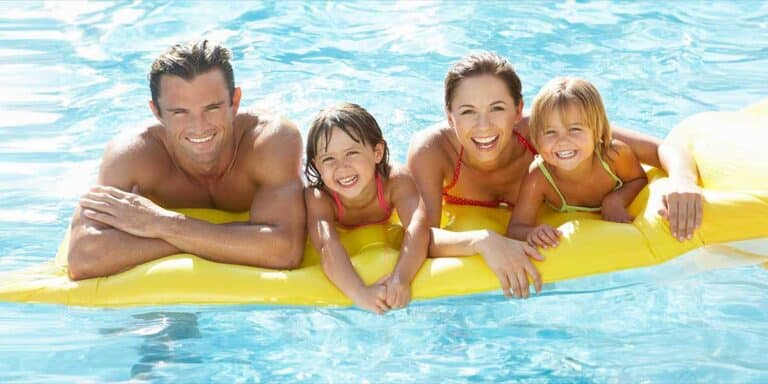Your Sarasota–Bradenton Guide to Low-Maintenance Winter Pool Care
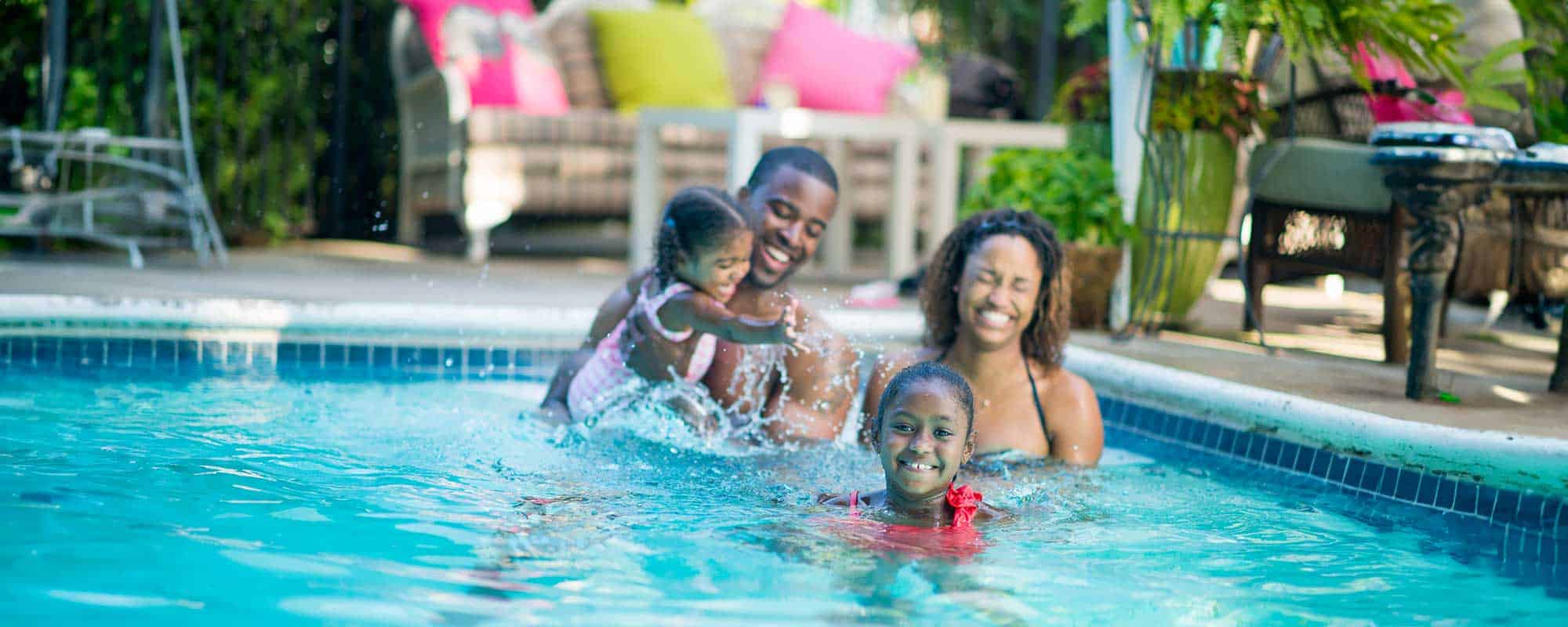
Welcome to winter in Southwest Florida—where “cold weather” usually means swapping your flip-flops for… slightly warmer flip-flops. While homeowners up north are busy closing and covering their pools, Sarasota and Bradenton residents get to enjoy sparkling, swimmable water all year long.
But even though we don’t winterize pools here, your maintenance routine does shift with the cooler temperatures. With average winter highs in the 70s, you’ll want a pool that stays clean, efficient, and warm enough for a relaxing dip whenever the mood strikes.
Here’s your essential guide to winter pool care in Sarasota, Bradenton, and Manatee County—including how to save money, protect your equipment, and keep your water effortlessly inviting all season long.
The Big 3 Shifts for Low-Maintenance Winter Pool Care
Think of late fall and winter as your pool’s “off-peak” season. With less sun and fewer swimmers, some tasks become easier—but a few become more important.
1. Master the Debris Patrol
Our brief Florida “leaf season” creates the biggest winter pool maintenance challenge: debris. If leaves settle and break down, they can stain surfaces, feed algae, and clog essential equipment.
Daily Skimming & Basket Checks
Use a net to make a quick pass each day, and empty both your skimmer and pump baskets more often. This protects your circulation system and keeps water moving freely.
Weekly Brushing
Even if no one is swimming, brush the walls, steps, and floor once a week. This prevents algae from sticking and keeps surfaces looking fresh.
2. Protect Your System: Run the Pump (Smarter!)
Cooler water lets you reduce your pump’s runtime—but circulation still matters. It keeps your chemicals evenly distributed and prevents stagnant surface water.
Winter Pump Runtime:
Most Sarasota pool owners can safely reduce summer runtimes (often 8+ hours) to 4–6 hours per day in the winter months.
Freeze Protection:
Freezes are rare here, but not impossible. If temperatures dip near 32°F, run your pump continuously until the warning passes. Moving water won’t freeze, which protects your plumbing and avoids expensive repairs.
3. Adjust Chemical Balance for Cooler Water
Cooler water holds chemicals longer and slows algae growth, but you still need to maintain a proper balance.
Dial Back Sanitizer
With less sunlight and fewer swimmers, your chlorine feeder or salt system doesn’t need to work as hard.
Monitor pH & Alkalinity Weekly
Stable levels prevent scaling, corrosion, and equipment damage—especially important in winter, when chemical imbalances linger longer.
Watch Your Water Level
Florida’s dry winter air increases evaporation. If the water drops below the skimmer mouth, your pump can suck air and burn out.
Pool Covers: The Secret to Winter Comfort & Efficiency
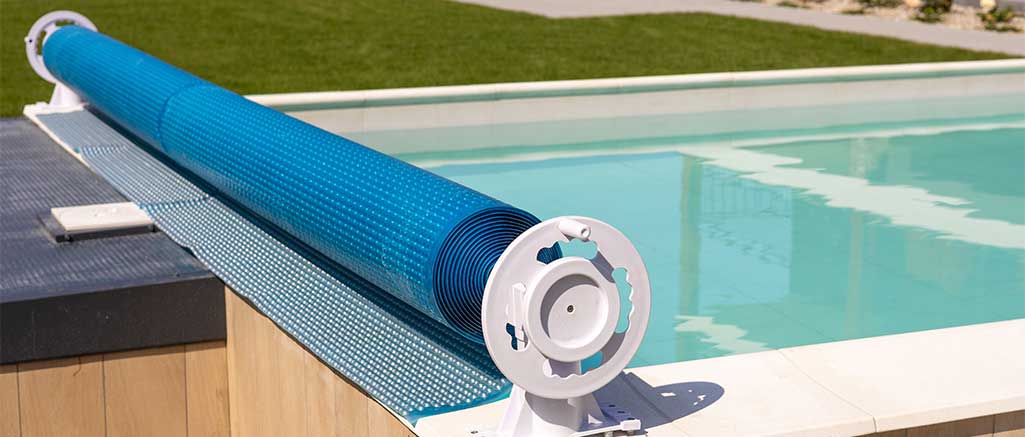
Should Florida pool owners use a cover in winter? Absolutely—especially if you heat your pool.
While we don’t cover pools to “winterize” them (draining is risky due to hydrostatic pressure), we do use covers to retain heat and lower costs.
Why a Cover Makes a Huge Difference:
Best Option: Solar Cover / Solar Blanket
Lightweight, insulated, and easy to use—especially with a reel system—solar covers help your pool stay warm using nature’s free energy.
Winter Heat Pumps: Care and Common Issues
A heat pump is your key to warm, comfortable winter swimming. Here’s how to keep it operating efficiently:
|
Issue |
What It Is |
Prevention & Fix |
|---|---|---|
|
Frost Buildup |
On colder days, the heat pump coils can accumulate frost as the unit operates. Excessive frost blocks airflow. |
This is normal. Never try to chip the ice off. Call a professional service if the unit runs continuously but never fully defrosts. |
|
Insufficient Heating |
The pool isn’t reaching your desired temperature (often set at 80°–82°F). |
.1) Use a pool cover. 2) Clear debris around the unit. 3) Check air filters and coils. |
|
Refrigerant Leaks |
Low refrigerant = poor heat transfer. Heat pumps should never “use up” refrigerant. |
The system should never need refrigerant added. If it’s low, there’s a leak. Schedule an annual inspection to catch minor leaks before they cause significant damage. |
As Certified Building Professionals, our award-winning team can perform pre-winter inspections to ensure your heat pump is running at peak efficiency.
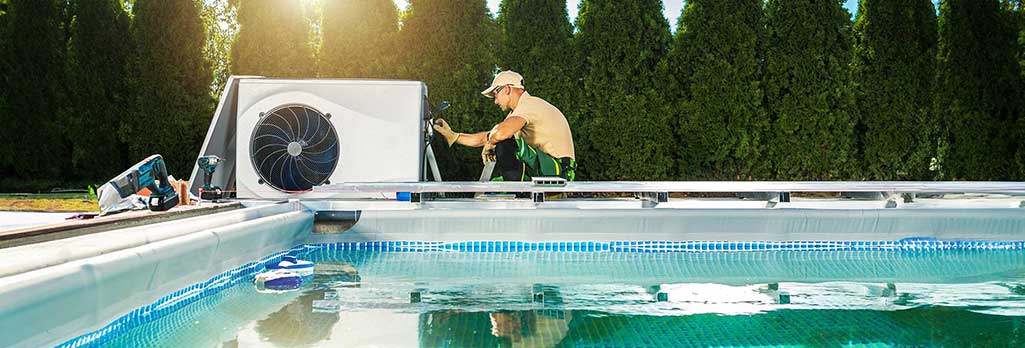
Don’t Forget the Spa! Winter Care for Hot Tubs
Your spa or integrated hot tub is a perfect winter luxury—just give it a little focused attention:
Chemical Balance Matters More
Hotter water and a small volume mean contaminants build up fast. Test before and after use and adjust sanitizer levels promptly.
Inspect the Spa Cover
A tight seal prevents heat loss. A waterlogged or deteriorated cover makes the heater work overtime and wastes energy.
Mind the Water Level
Spa water evaporates quickly. Keep the waterline above the jets to protect the heater and pump.
Ready to Enjoy Your Pool All Season?
Whether you need a winter equipment check-up, an upgrade to a more efficient circulation or heating system, or a complete remodel consultation, the team at Swim Incorporated is here to help.
We’re proud Certified Building Professionals and the inventors of the energy-saving Swim-Safe™ Circulation System.
Contact us today for a free design consultation and estimate—and enjoy a warm, low-maintenance winter pool in Sarasota.

